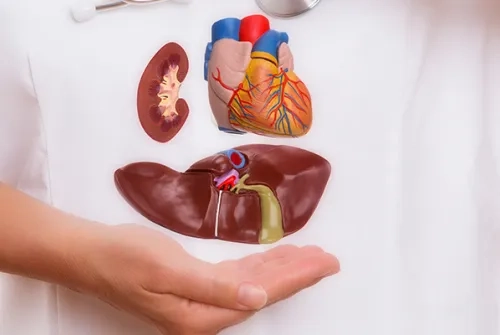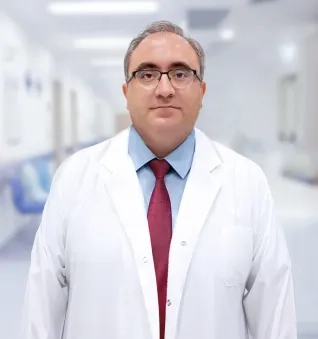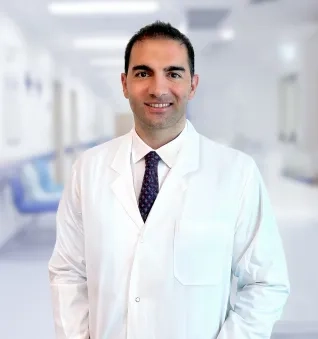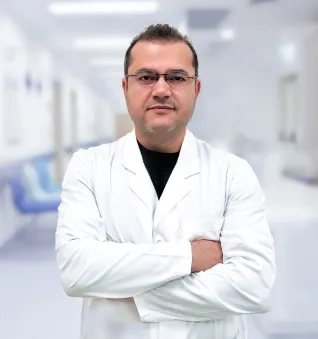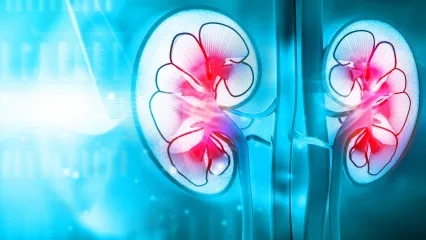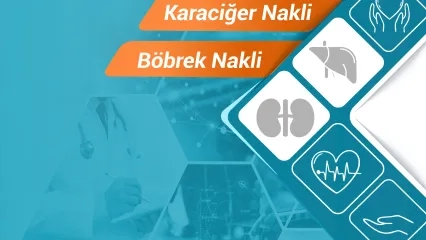Alo Yeditepe
Alo Yeditepe
Things Wondered About Kidney Transplantation and Organ Donation
A large number of people in the world are faced with kidney failure every year. On the other hand, the insufficient number of donors increases the need for kidney transplantation. However, our country is at quite a good place in organ transplantation and donation compared to ten years ago. There are also promising developments in the field of organ transplantation from cadavers. The number of brain death declarations also increases more and more.
Stating that the purpose of Yeditepe University Hospital is to try to help people who are in trouble in the struggle for life due to organ failure and to improve their quality of life, Nephrology Department Head Prof. Dr. Gülçin Kantarcı said that as a hospital, they organize training and organ donation campaigns to increase organ donation and raise awareness.
Yeditepe University Hospital Nephrology Department Head Prof. Dr. Gülçin Kantarcı answered our questions regarding the issues wondered about organ donation and kidney transplantation.
In Which Cases is a Kidney Transplantation Necessary?
Kidney transplantation is necessary for patients who are at the advanced stage of a condition that we qualify as chronic renal failure, in which the main task of kidneys cannot be fulfilled for good, which is cleaning the remaining portion of substances taken as food or drugs that need to be excreted after being used as much as necessary from blood and discharging them by forming urine. Hemodialysis or peritoneal dialysis is performed on patients diagnosed with an advanced stage of chronic renal failure and for whom a suitable kidney donor could not have been found. There are about 60,000 kidney patients currently undergoing dialysis treatment in our country. The successful and exclusive form of treatment for final-stage renal failure, which is the stage of chronic kidney disease that requires kidney support therapy, is kidney transplantation treatment.
From Which Sources are Organs Provided to Patients Who Need a Kidney Transplantation?
The organ needed for kidney transplantation can be provided from two sources:
From a living donor and a Cadaver (A brain-dead person).
Who Can Be a Living Donor?
The sick person's relatives from the first degree (mother, father, child) to the fourth degree (uncle's child, aunt's child, brother's grandson... ) can be living donors. Similarly, the patient's spouse and their relatives up to the fourth degree can also provide a kidney. In addition, donors who have emotional closeness with the patient but are not their relatives can also become organ donors if they apply to health directorates and receive ethics committee approval. However, people under the age of 18 cannot be organ donors. A person must volunteer to be an organ donor.
What is Brain Death? Is It Possible for a Brain-Dead Person to Come Back to Life?
It is the irreversible loss of the brain and brain stem functions. Despite all the medical support given in intensive care units, other vital organs of these people also lose their functions after a while. It is not possible for people diagnosed with brain death to return to life.
The concept of brain death is not fully understood brain death is a medical death, an irreversible process.
What are the Reservations Among the Public About Organ Donation?
One of the general reservations is the worry of deterioration of body integrity. However, body integrity never deteriorates.
Doubts about to whom the organs will be inserted also cause hesitation about organ donation. Regarding this issue, the following explanation can be made: Regardless of rich-poor, religion-language, race-gender distinctions, primarily according to tissue and blood group compatibility, taking into account medical urgency, emergency cases on waiting lists are screened by the Ministry of Health NATIONAL COORDINATION SYSTEM and transplantation is performed by identifying the most suitable recipient.
What Do I Need to Do to Donate an Organ?
Organ donation is giving permission, of one's own volition, while still alive, for some or all of one's organs to be used after one's death for the treatment of others. According to Law No. 2238 on Organ and Tissue Retrieval, Storage, Vaccination, and Transplantation, "Anyone who is over the age of 18, of sound mind, and sane can donate organs." Donations can be made in all public hospitals, private hospitals, community health centers, and health directorates. As a legal procedure, a form is filled out, and your organ donation card is given. Organ donations made are entered into the ORGAN AND TISSUE DONATION INFORMATION SYSTEM OF THE MINISTRY OF HEALTH via the Internet by the organ transplantation coordinator of that hospital or an authorized person assigned by the hospital. No one except the ministry officials is authorized to see this information. The information on your card is never enough for organ retrieval. In case of a person's death, the approval of their relatives is required, even if the card is found on them. For this reason, it is essential for people who donate organs to inform their relatives of their donation.
What Efforts Should Be Made for the Spread of Organ Donation in Our Country and What are Your Views on This Issue?
First of all, increasing organ transplantation from cadavers should be aimed at. Campaigns to raise awareness about organ donation in our country should be organized, and research that will investigate the Medical, Ethical, Legal, Religious, and Political sources of organ donation problems should be conducted. A solution will be achieved only through the planning to be made according to the facts that these studies will reveal.
Can You Give Us Some Information About Life After Kidney Transplantation?
The duration of hospital stay after surgery is 1-3 weeks under conditions where everything is appropriate. Now a new life process with their new kidney begins for the patient. After the transplant, kidney patients can lead a normal family and home life, return to social life, and do the work they did before. However, it may take some time for the body to regain its strength after the transplant.
Great attention should be paid to organ preservation and protection from opportunistic infections in the first six months after transplant.
After a kidney transplant, the patient's appetite is improved with the new kidney's rapid clearing of harmful substances from the blood. On the other hand, attaining a new and normal life also has a positive effect on appetite. In addition, it should be noted that cortisone medications increase appetite.
For these reasons, patients often gain weight by eating a lot after having a kidney transplant. With weight gain, the amount of waste products that occur as a result of metabolism and are removed by the kidney increases. This condition puts a separate burden on the kidney and increases the likelihood of damage to the kidney. In addition, overeating can also cause an increase in blood sugar.
Unlike dialysis treatments, where only some of the kidney functions are fulfilled, in successful kidney transplants from a living donor and from a cadaver, all kidney functions are fulfilled. In addition, the patient's quality of life is better since both all-kidney functions are fulfilled and the physical and psychological difficulties caused by continuous dialysis procedures are eliminated.
Do Patients Take Drugs for Lifetime After Transplantation?
As a function of their immune system, living beings try to eliminate or neutralize different building blocks foreign to their body (we call them antigens) by recognizing them. In other words, the cells that are the building blocks of our body have antigens that enable them to be recognized by the immune system. The immune system recognizes these antigens and does not fight against the cells that belong to our body. On the other hand, a cell that enters the body from the outside contains different antigens, and foreign antigens activate the immune system. Just as the immune system fights against a microbe that it considers foreign, it can also see the transplanted organ as a stranger and resist it. Here, immunosuppressive drugs are used to minimize this activation. For this reason, it is necessary to use these drugs as long as the organ lives since the body will never forget the foreign organ. After transplantation, drugs that suppress the immune system, drugs called antibiotics that fight bacteria in the human body, which are used temporarily, and drugs called anti-viral that fight viruses are all used. Drugs such as blood pressure medication and cholesterol-lowering medications can also be added as needed. The use of medication is intense for the first six months after surgery. After the sixth month, depending on the clinical course of the person, the number of drugs and doses of some drugs may be reduced. Especially the regular use of immunosuppressive drugs is of great importance for the health of the kidney.
What Should be Done to Have a Kidney Transplant?
Patients with advanced-stage renal failure who want to have a kidney transplant should apply to Organ Transplantation Centers. If the patients assessed in nephrology outpatient clinics are kidney transplantation candidates, they are referred to organ transplantation coordinators and organ transplantation surgeons. After a detailed assessment of the patient and the donor candidate for the patients with a living donor, the kidney transplant is performed quickly if no condition prevents a kidney transplant.
Patients who do not have a living donor candidate, on the other hand, after all their necessary assessments, including blood and tissue group analyses, are performed, are recorded on the national cadaver waiting list at the organ transplantation center to which they apply.
What Does Yeditepe University Hospitals Do About Organ Transplantation?
As Yeditepe University Hospital Kidney Transplantation Center, we also have within our body an experienced team performing kidney transplants, which has proven itself. Our goal is to extend our helping hand in a setting that is healthier, safer, and of higher quality to patients with kidney failure who are waiting for organs.
This content was prepared by Yeditepe University Hospitals Medical Editorial Board.
”
See Also
- Fall from Height Led to Kidney Failure, Saved by Sister's Donation
- What is a Liver Transplant, How is it Done? and Who is it For?
- Journey of Hope from Georgia to Turkey: 63-Year-Old Father Donates Kidney to Son
- Birthday Gift Becomes a Gift of Life: Kidney Donation from Husband of 20 Years
- Can Liver Cancer Be Prevented?
- What is Hypoglycemia?
- Common Misconceptions About Kidney Transplantation
- 19 Years Old Davut MİNAZ, Who Lost 45 Kilos in 4 Months, Clung to Life with His Father's Kidney
- Kidney Diseases and Treatment Methods
- What are the Problems Requiring Gallbladder Surgery?
- Gallbladder Surgery is a Necessity, Not a Choice
- What is Organ Donation?
- 10 Questions About Kidney Transplantation
- How Should the Daily Salt Consumption Amount Be?
- Misconceptions About Hypertension
- Chronic Kidney Disease and Treatment Methods
- What is Hypertension?
- If You Consume More Than 5 grams of Salt...
- The Frequency of Hepatitis Seen in Dialysis Patients Is Decreasing
- 12-Year-Old Tuğba Nur Survived with Transplant
- Excess Protein Does Not Increase Muscle Mass, and It Impairs the Kidneys
- AV FISTULA Should Be Done At The Right Time For Hemodialysis Patients
- Pay Attention to Kidneys in Pregnancy!
- He Held On To Life with His Brother's Kidney
- Recommendations to Strengthen the Immune System
- Kidney Failure Caused by Ear Obstruction
- There is Still a Lot of Misconception About Organ Donation
- He Lost 20 Kilograms in 40 Days for His Wife
- One Out of Every Seven People Has Kidney Disease
- How Should Kidney Patients Be Protected From COVID-19 Coronavirus?
- What is Propolis? How to Use Propolis?
- Improper Nutrition Invites Kidney Failure
- Important Warning from the Expert: “Not Adding Salt to Meals Alone Is Not Enough”
- 8 People a Day Lose Their Lives While Waiting for Organ Transplantation in Our Country
- Attention to Drug Use After Kidney Transplantation!
- Are Your Kidneys Really Healthy?
- Being Thirsty in the Heat Tires the Kidneys!
- Liver Cancer (Tumor) and Treatment
- Tissue Harmony Is Also Important for Success in Kidney Transplant
- Phytotherapy and Immune System
- What is a Kidney Transplant?
- Hereditary Kidney Diseases Are Underrecognized!
Alo Yeditepe

